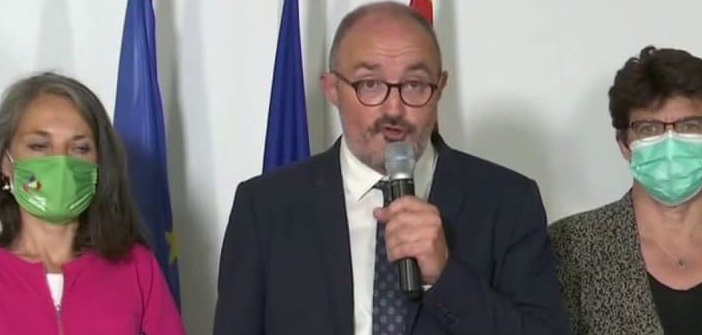“Much Ado About Nothing,” would have written William Shakespeare. Indeed… it would take a playwright to explain the tumultuous path of the decision-making process that stirred expectations and debate after the first round of the regional elections in PACA and the result placing the RN list led by Thierry Mariani in the lead with an advantage of nearly 5 points over that (RN+LREM) of Renaud Muselier. In third place, with nearly 17% of the votes, Jean-Laurent Felizia turns out to be the likely kingmaker.
Still, the “bard” could have inspired the eco-socialist-communist top candidate with the existential question: “to be or not to be? that is the question.”
Abandoned by EELV and the PS after announcing on Sunday evening that his list would remain, the ecologist stepped down on Monday midday under pressure from his running mates.
He eventually accepted: “I had no right to play with fire. (…) I will vote for Renaud Muselier to defeat Thierry Mariani and his sad cohort,” he stated in a subsequent declaration.
Yet, on Monday morning, he remained “steadfast,” by his own words, despite almost unanimous condemnation from Parisian leadership as well as from other regions of France.
The direct consequence of this withdrawal will be the absence of left-wing representatives in the regional assembly. It will be a repetition of the 2015 election, posing a political problem that Renaud Muselier assumes: “It is the condition of respectful unity I wish for, for a peaceful, prosperous, and solidary region, if the list I lead for ‘Our region first’ wins on June 27.”
Renaud Muselier opens a window and indicates a path: “I pledge to propose, in the coming days, new mechanisms that will allow them to have influence through proposals for deliberations, motions, and wishes, right within the regional assembly. Citizen participation in the exercise of regional democracy will also be guaranteed from the start of this new mandate.”
Can we expect the implementation of referendums for certain matters of significant importance, a topic dear to the ecologists?
Should we deduce that “Paris is well worth a Mass,” an expression attributed to Henri IV, remains relevant despite the centuries that have passed?


